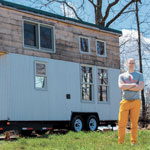
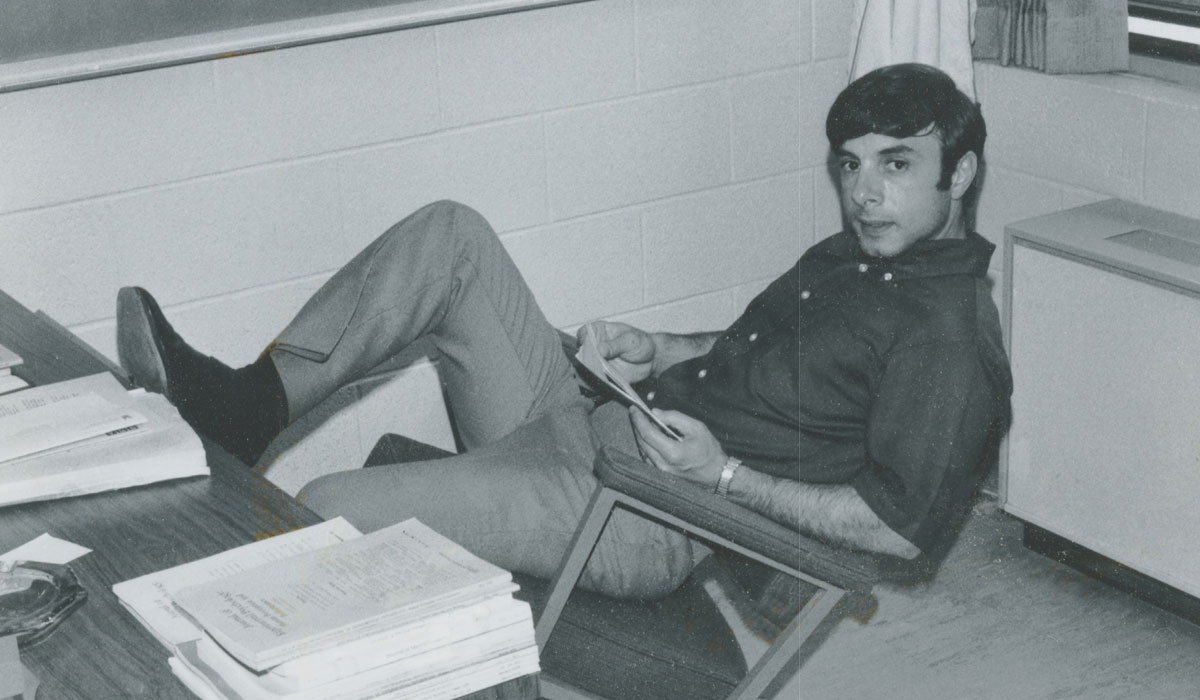
On a quiet Friday morning during the spring 2022 semester, Psychology Prof. Bob D’Agostino sits in his office in McCreary Hall—door propped open, feet up on his desk. From wall to wall, Gettysburgians can peer in and see storage boxes overflow with journals, mugs, and letters from former students, spanning a 53-year career. While he retired at the conclusion of the fall 2021 semester, he still comes to campus to visit with the colleagues and students who affectionately call him “D’Ags.”
Despite being the longest-serving professor at Gettysburg College, little has changed about D’Ags. When you walk into the room, he’ll leap up from his seat to greet you and direct you to the chair next to his desk where decades of students have sat over the years. He assumes his age-old professorial stance, reclining in his chair with his legs kicked up on the corner of the desk—the same stance that students recall from his first year of teaching back in 1969. His voice modulates from an intense whisper you want to lean in to hear to a booming crescendo that shakes the room. Without missing a beat, he begins to ask about your life and listens intently.
This has been the D’Ags way: teaching passionately, caring deeply, and, most of all, connecting with and inspiring his students.
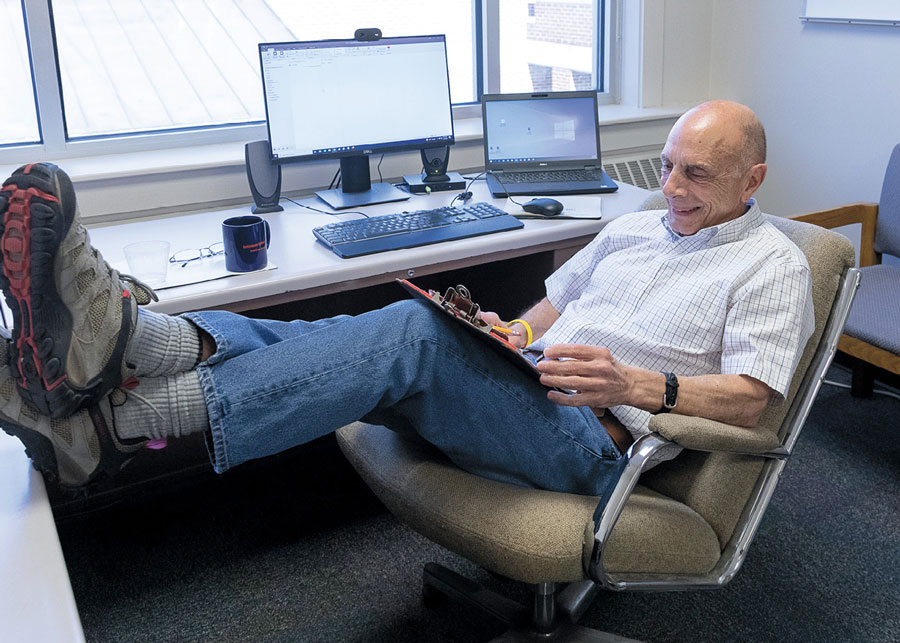
“That’s probably the thing I’ll miss most—getting to know these kids,” he said with a smile. “They become friends. Some of these kids are friends for 50 years. That’s probably the most important and positive thing that’s happened here for the last half century.”
Instructing With Fervor
In 1969, his first year at Gettysburg as a brand-new scholar in his mid-20s, D’Agostino established a headstrong vision: be innovative in the field while educating the next generation onto greatness. He had just graduated from the University of Virginia with a master’s and Ph.D. in psychology and captured the attention of the Psychology Department and a group of students during his interview at Gettysburg with his research on social cognition and memory. D’Agostino landed the job because he wore his heart on his sleeve and showcased a personability that would build lifelong connections.
“He communicated such a love for research,” Paul Bartkus ’70 explained. “[In the classroom,] it was sort of like a volley of tennis. He brought the journal articles to life as if it was a conversation among the scientists who wrote them. It was a completely novel experience for me.”
With an out-of-the-box point-grading system and lecturing after ample preparation, he immediately commanded the respect of his students as both a mentor and an academic. Bartkus even remembers the young professor staying after class, leaning against his table, to chat with his students.
“[Gettysburg] was his first teaching assignment after the University of Virginia, so we were within a five- or six-year age range [of D’Ags]. That made him more collegially approachable,” said Bartkus, a retired school psychologist.
Since the early days of his tenure, D’Agostino proved to be a respected scholar and an intrinsically passionate educator. He published research in prominent psychological journals, such as the Journal of Personality and Social Psychology and the Journal of Experimental Psychology: Learning, Memory, and Cognition. He also earned three grants from the National Science Foundation (NSF), including the largest NSF grant Gettysburg College had received in 1975. Some of his research topics included the effects of repetition and recall on memory and the perception of subliminal information.
“Bob’s focus on excellence in teaching and research, beginning back in the late 1960s, set a standard not only in the Psychology Department but also for the College more generally,” said President Emerita Janet Morgan Riggs ’77, a psychology major who took many of his classes.
For the first 20 years of his career, D’Agostino followed a strict daily routine of preparation and teaching: wake up early, work until 4 p.m., walk to his Water Street home for dinner with his wife and three kids, and then return to campus preparing the next day’s lesson plans until the bell of Glatfelter Hall struck 10 p.m. He also frequented his office on weekends because his workdays often revolved around interacting with students and colleagues rather than sitting alone, preparing for lectures.
“[I spent] countless times in his office. It turned into a frequent thing of me just stopping by for what I always [thought was], ‘OK, I’ll be here for 10 minutes,’ [but it] turned into an hour and I’d be running late for practice,” said Gabby Dunning ’21, a psychology graduate student at Fairleigh Dickson University who fondly remembers D’Agostino supporting her in the classroom and in the stands at Gettysburg women’s lacrosse games—to the point where he felt like family.
When D’Ags looked back at his demanding routine as a professor, he wondered how he did it all, but he said with a smile that he did it for his students. Up until the final hour of his retirement, and even beyond, he showed up every day, dedicated and driven.
Guiding With Belief
It was to no one’s surprise that D’Agostino quickly moved up the ranks. By 1973, he earned tenure, and six years later, he attained full professor status, the highest rank for a professor at the College. During this time, his impact on students remained paramount to his work. His faculty colleagues selected him for the 1999 Distinguished Teaching Award, and in 1973, the first honors thesis student for the Psychology Department asked him to be the primary advisor on the special project. He went on to advise 11 of the 18 following select honors thesis students over the years, in addition to many more advisees in the program.
D’Agostino became a sought-after advisor because he taught with his whole heart, mind, and body. He often bounced around the classroom and caught students off-guard with his commanding voice, echoing down the hall and into other lectures. His energy was contagious.
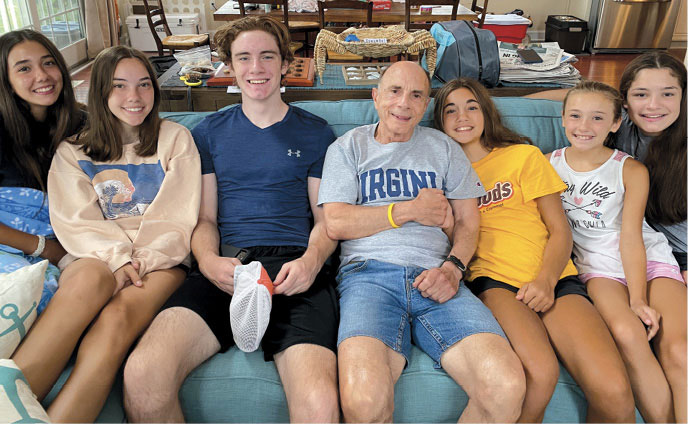
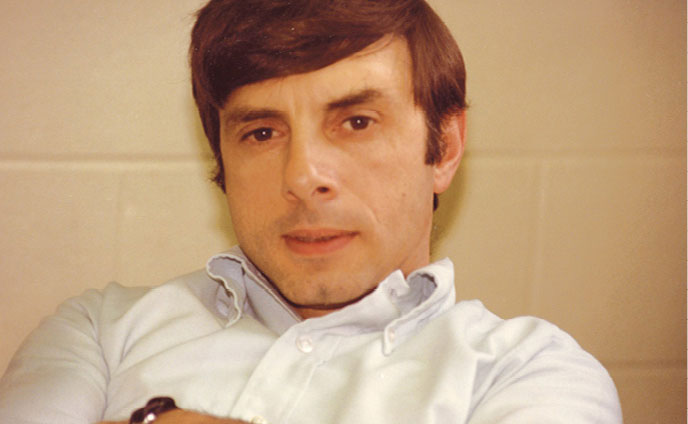
“That’s his style, and it’s riveting,” said Psychology Prof. Rebecca Fincher-Kiefer P’17, one of D’Ags’s closest colleagues and mentees. “As much a dramatic performance and a sermon as it is a lecture, it’s something to watch—and borne out of hours upon hours of preparation for each and every lecture.”
“There was definitely no dozing off in his class,” added Riggs, who considered D’Agostino a role model.
D’Agostino also took great care to address each student individually, remaining attentive to who they were as people just as much as who they were as students. Even decades down the line, he still recalled where specific students sat in the classroom, which sports they played during their undergraduate years, or awards they received for work in other areas of study.
“It really felt like there was no one else in the classroom,” said Arizona State University Psychology Prof. Kevin Grimm ’00, who remembered D’Ags applauding him for a Mathematics Department award. “He made everything really relevant to his students. … He knew a lot about you outside of psychology.”
Despite many of his students never experiencing such a challenging and fast-paced course previously, the usage of points rather than letter grades helped students better track their progress. The more points they accumulated, the better they commanded the topic—and the more effectively he taught. As a result, many of his students rose to the occasion and felt energized by his belief in their skills.
“Most college classes were not too challenging for me, and [his class] was hard,” said Melinda Stanley ’80, a distinguished emerita professor at the Baylor College of Medicine. “I actually had to think and problem-solve.”
At the end of each semester, D’Agostino also regularly asked students to work with him as research assistants and later guided them through the process of applying to graduate school. Instilling an unprecedented level of self-confidence in scores of young undergraduate students, his power of belief transcended any barriers in his students’ paths to success.
In fact, four of his former students have become college presidents— Abraham Baldwin Agricultural College President Tracy Brundage ’92, Elizabethtown College’s Transitional President Betty Rider ’80, St. Lawrence University President Kathryn Morris ’92, and Gettysburg’s own president emerita Riggs. Many of his former students have also gone on to earn master’s degrees and doctorates.
“The first time I took the GRE, [he] looked at my score and looked at me and said, ‘You can do better,’” said Abigail Levrini ’02, a psychologist, owner of Psych Ed Connections, and bestselling author for the American Psychological Association. “That was all it took. Because [he] believed I could, I did. Until eventually, I believed in myself.”
Leading With Heart
From hanging out with Bartkus after the bell went off in the late ’60s to attending Dunning’s lacrosse games through 2021, D’Agostino has impacted every one of his students in a way that the memories came flooding in when he announced his retirement in 2021.
“Bob’s greatest gifts are his brilliance, humbleness, and listening with empathy,” said former Director of EES Student Success and Well-being Cindy Wright P’08, ’13, ’16. “He emulates the foundation of a liberal arts education, believing in the holistic development of our students both in and out of the classroom.”
“That was all it took. Because [he] believed I could, I did. Until eventually, I believed in myself.”
– Abigail Levrini ’02
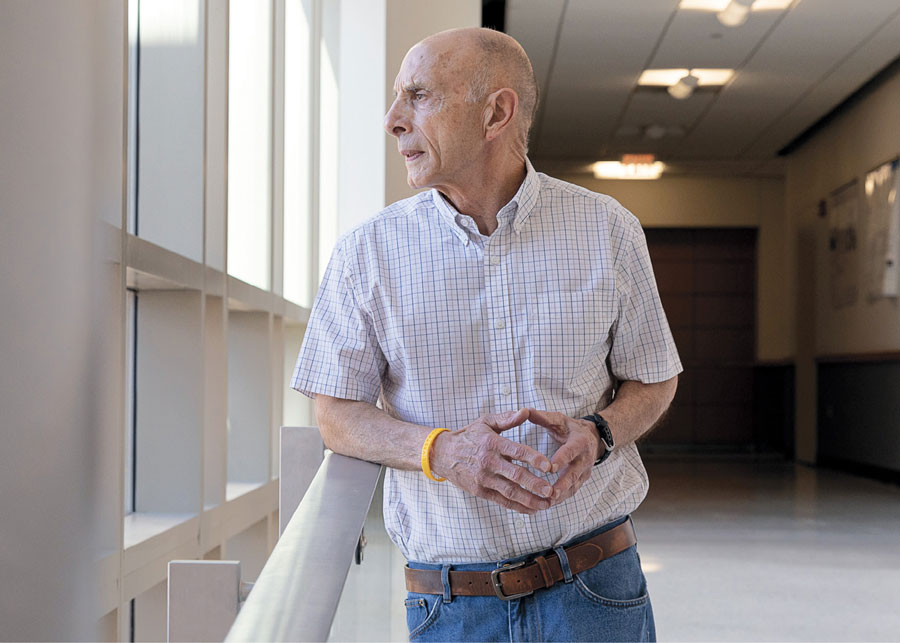
“This quote, ‘To teach, you need books. To educate, you need heart,’ by Vikrmn really sums up Bob—he educated with heart,” she continued.
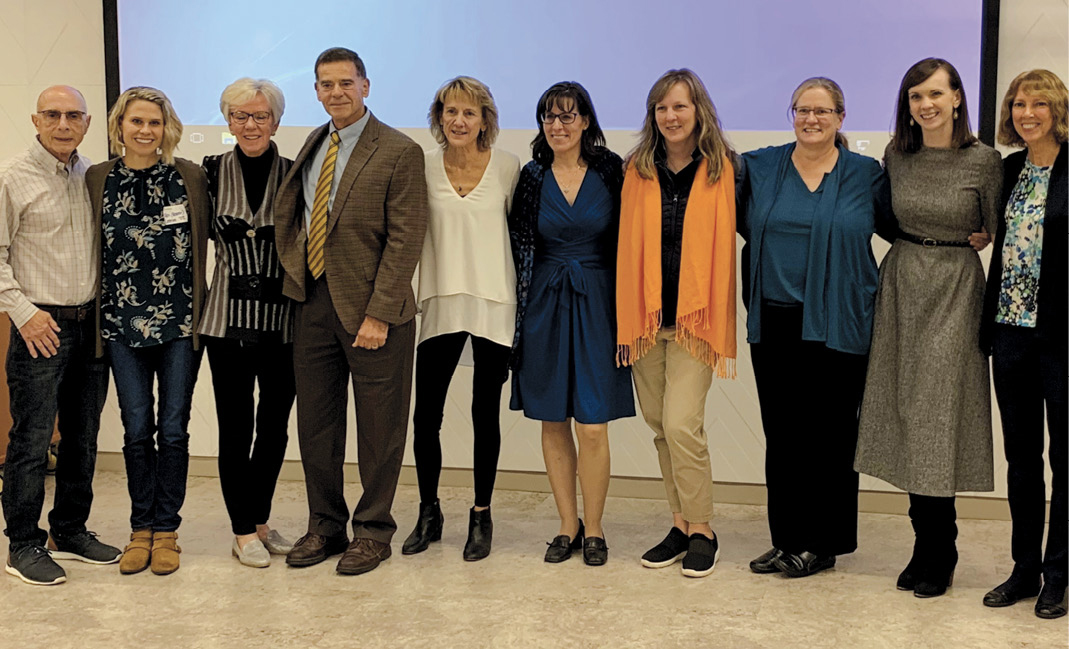
More than 50 years strong, his career has become a legacy to uphold. In honor of that legacy, “Team D’Ags”—a group of fundraisers led by faculty colleagues and alumni—collected more than $124,000 in donations in just over a year to establish the Bob D’Agostino Endowed Scholarship Fund. This scholarship will be awarded to a student aspiring to pursue a degree in psychology, beginning in the 2022-2023 academic year.
“Bob’s legacy of teaching and research excellence continues on in this scholarship and in the lucky students who will receive it and benefit from the respect and admiration that former students showed for a very special professor,” said Fincher-Kiefer.
He leaves behind a legacy of excellence in innovative instruction and mentorship in addition to achievements in research and scholarship. But what ripples through his network of students, faculty, and friends—and endures the test of time—is his unwavering humanity.
“The job was teaching and research,” said D’Ags. “[But] talking with people, getting to know them, that’s not the job—that comes naturally.”
His door will forever remain open to remind that network how much he believed in them.
“There aren’t enough ways to say thank you. I can only hope to have the impact on even one person that [he has] had on me,” said Levrini. “Thank you, D’Ags. With all my heart—thank you.”
Tell us about the professors who made a lasting impact on your life by emailing alumnimagazine@gettysburg.edu.
To make a gift to the Bob D’Agostino Endowed Scholarship Fund, visit www.gettysburg.edu/giving or contact Betsy Duncan Diehl ’84, P’14, in the Office of College Advancement at ediehl@gettysburg.edu or 717-337-6507.
by Phoebe Doscher ’22
Posted: 11/03/22


